Sustainability
Sustainability at Aberdeen Football Club
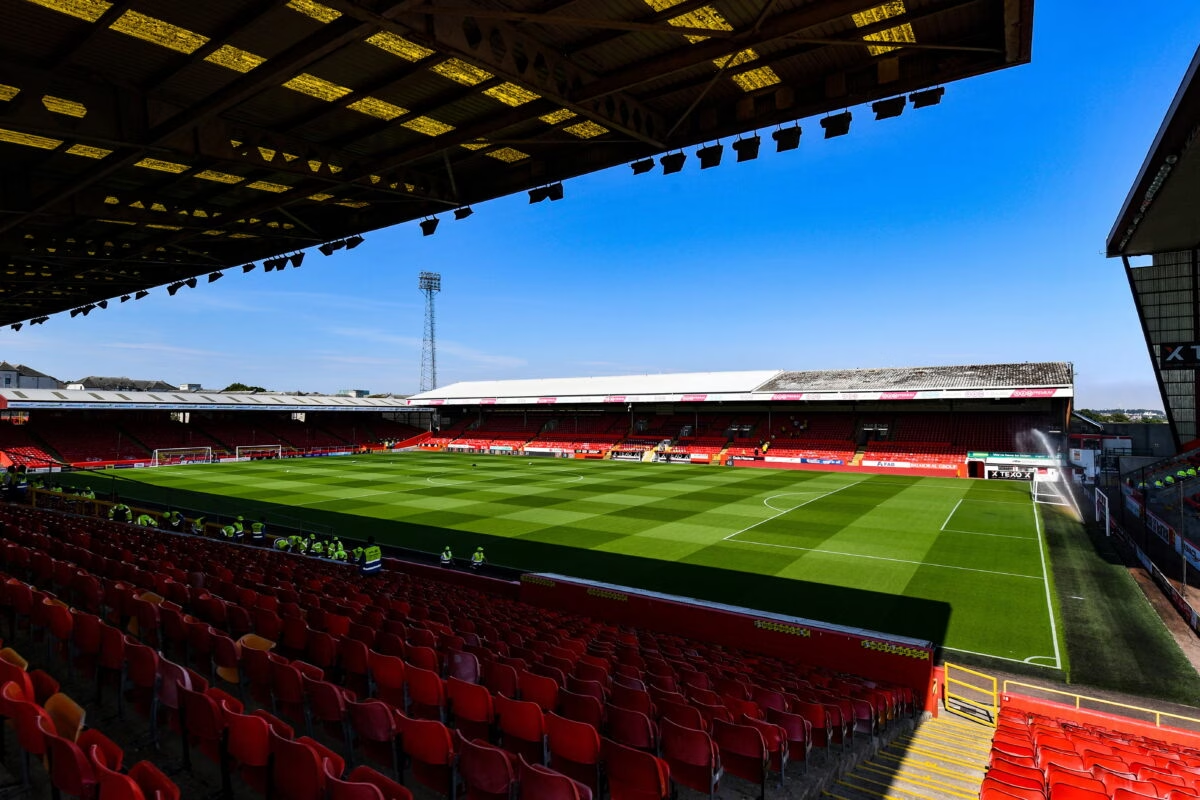
Aberdeen Football Club are committed to reducing the Club’s carbon footprint by 50% by 2030 and achieving net zero by 2040.
Having joined other sports organisations in the UN Sports for Climate Action movement in March 2022; Aberdeen FC made public their pledge and subsequently appointed the Club’s first Net Zero Advisory Partner, Positive Planet.
Aberdeen FC has long been actively reducing their impact on the environment through initiatives such as innovative water management, LED sensor-operated lighting, eco-friendly showers and work that ensures food, waste oil, grass cuttings, plastic, paper and cardboard are all recycled.
In Partnership with First Bus and Stagecoach, the Club has also been able to provide free public transport for fans on matchdays.
The work with Positive Planet has resulted in the recent publication of a benchmarking report on the Club’s carbon footprint which enables planning for further systematic efforts to meet the targets to net zero that have been set.
Carbon Footprint Summary at AFC
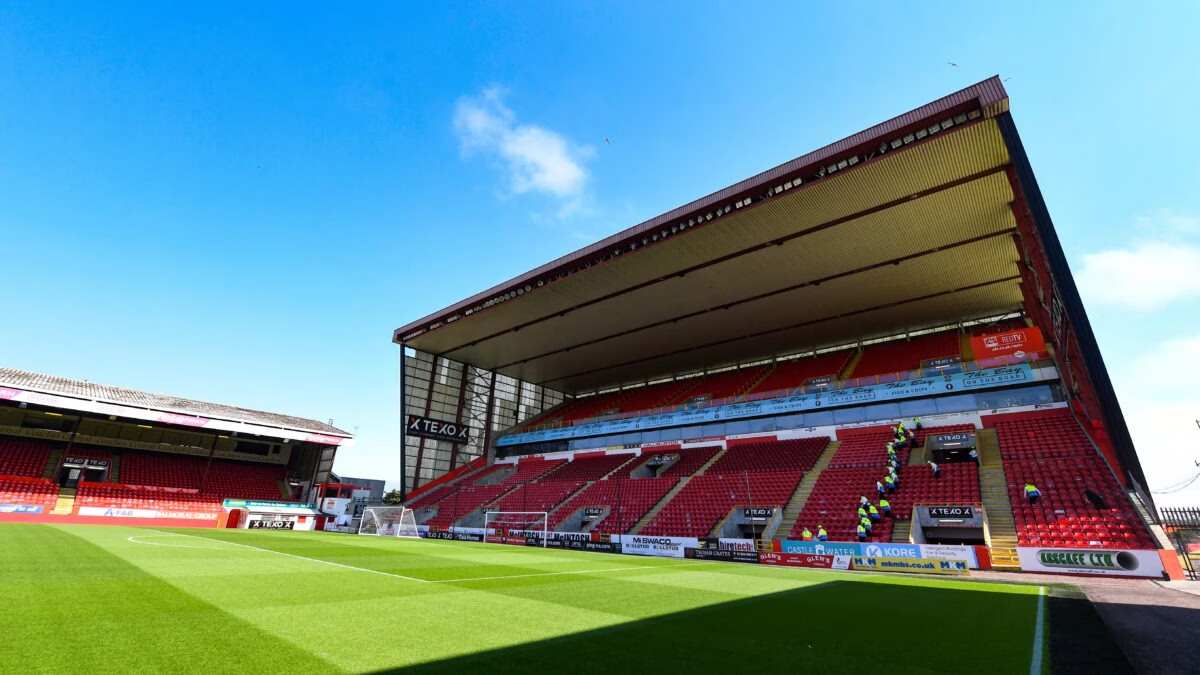
Using the data supporters provided, combined with Radiative Forcing metrics and emissions factors from HM Government, we are able to calculate the total carbon emitted as a result of operating the football club.
The club carried out a project in order to calculate this figure:
- Operational data was collected from across the business, covering the period of June 2021 –May 2022 for AFC, AFC Trust and Baxter Storey
- All data received was validated and checked for compliance and accuracy
- Relevant carbon emissions factors were applied to the data to form the basis of the measurement
Please note, The measurement excludes fan travel to/from games but a summary of this data is included later for reference.
DATA COLLECTION SUMMARY

SUMMARY RESULTS

*All measurements are reported in tonnes of CO2e
Scope One
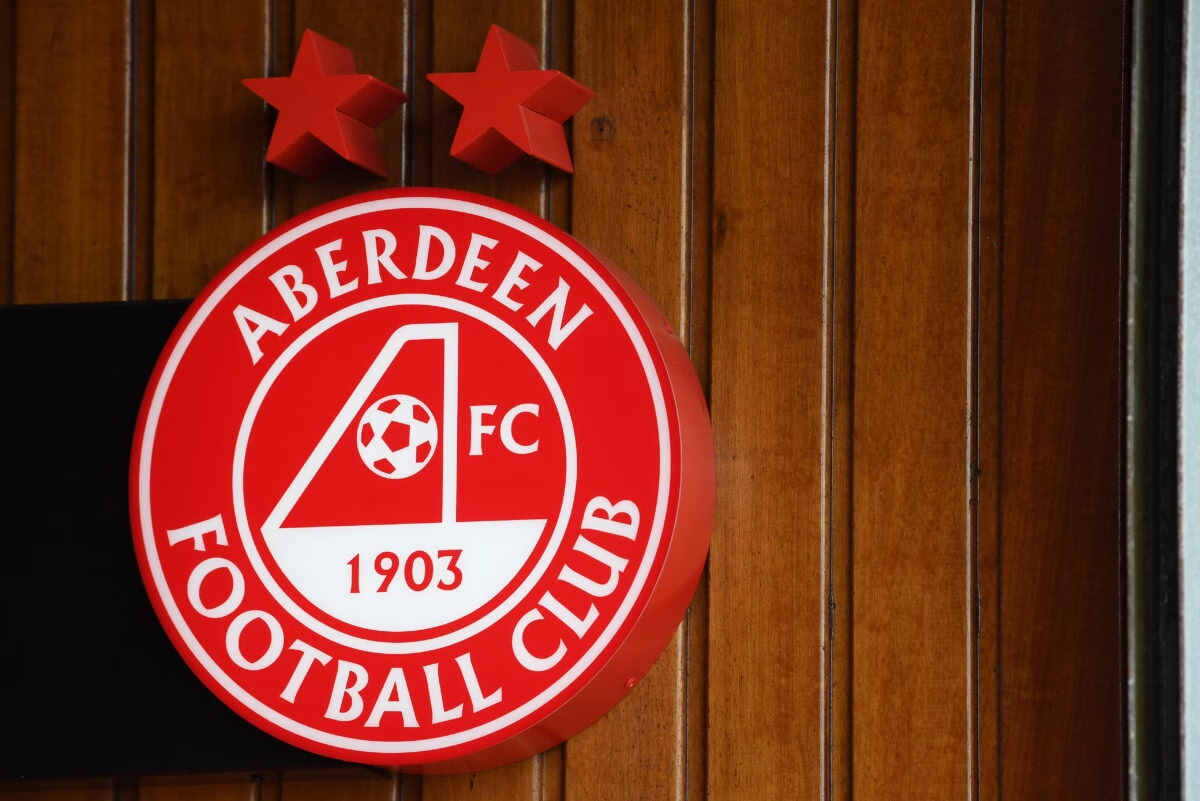
Scope 1 emissions are direct emissions from owned or controlled sources.
Scope 1 covers emissions from fuel consumption in company vehicles, mains gas consumption, emissions from manufacturing processes and fugitive emissions (leaked/ escaped gasses including that from air-conditioning systems)
In the case of AFC, this only needs to cover emissions from mains gas and fuel used in company vehicles.

Scope Two
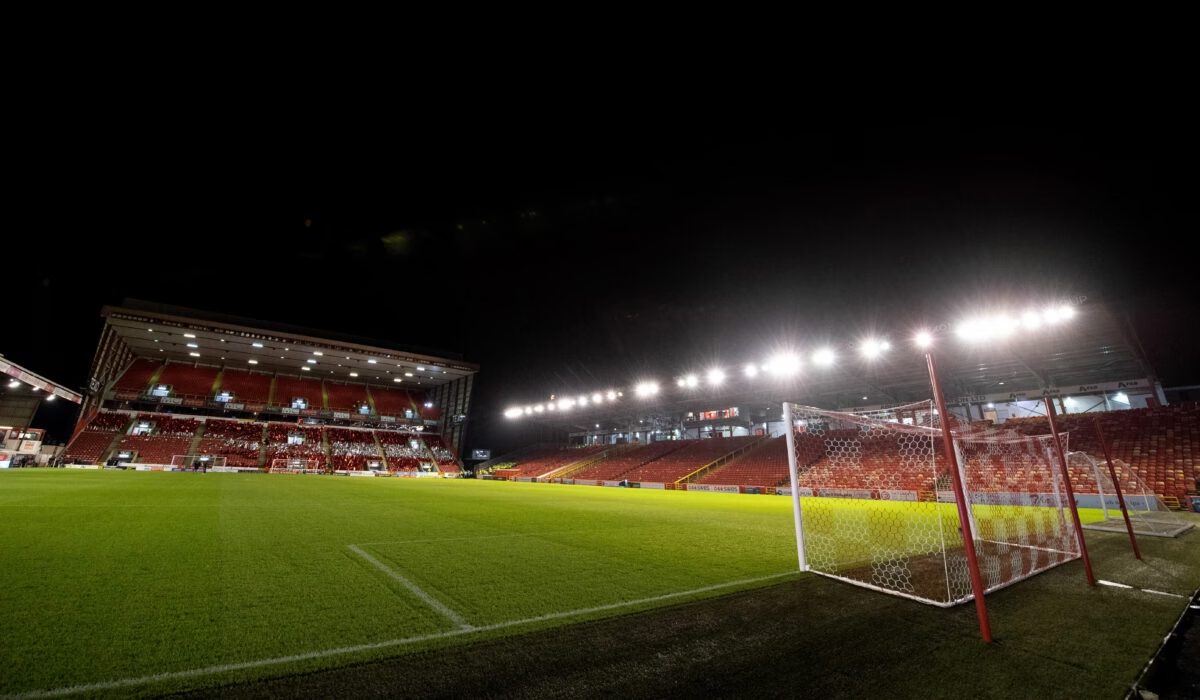
Scope 2 emissions are indirect emissions from the generation of purchased energy.
Scope 2 covers the electricity purchased, net of any renewable energy. This means that if you have 100% renewable energy you will report zero scope 2 emissions.
As AFC does not currently have 100% renewable energy there are some recorded emissions from electricity consumption.

Scope Three
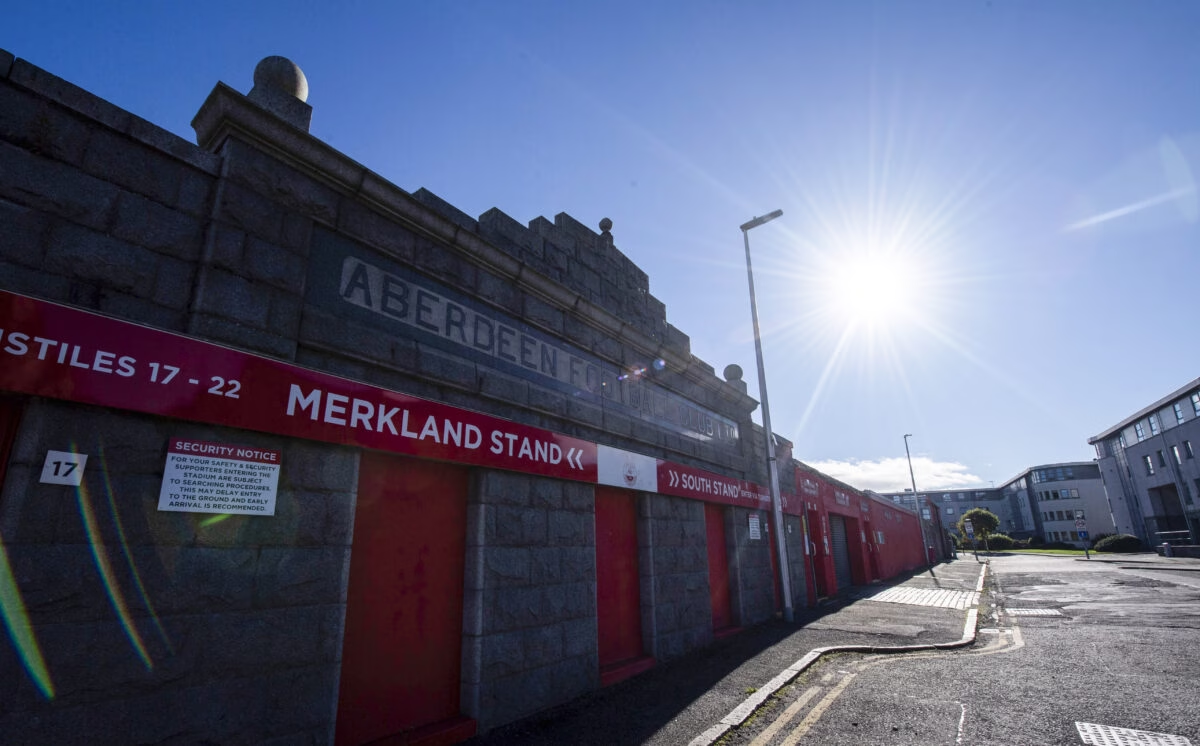
Scope 3 emissions are indirect emissions from your supply chain.
Scope 3 covers procurement, travel (excluding company vehicles), distribution and waste/water. Procurement–Most things you purchase, both goods and services, will come with emissions. These emissions are reported under procurement.
Travel –All forms of travel, including commuting and home-working, will lead to emissions. These will all be reported under travel.
Distribution–The shipping of products both into and out of the organisation will all have emissions, mostly from fuel and energy.
Waste/ Water –The production of waste and consumption of water both have emissions associated with them. Most emissions from waste come from the collection/ transportation away from your site.
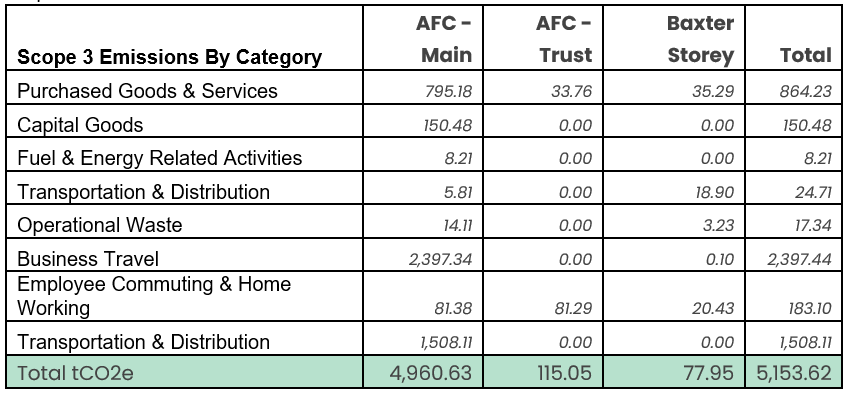
Carbon Footprint of fans travelling to Pittodrie Stadium
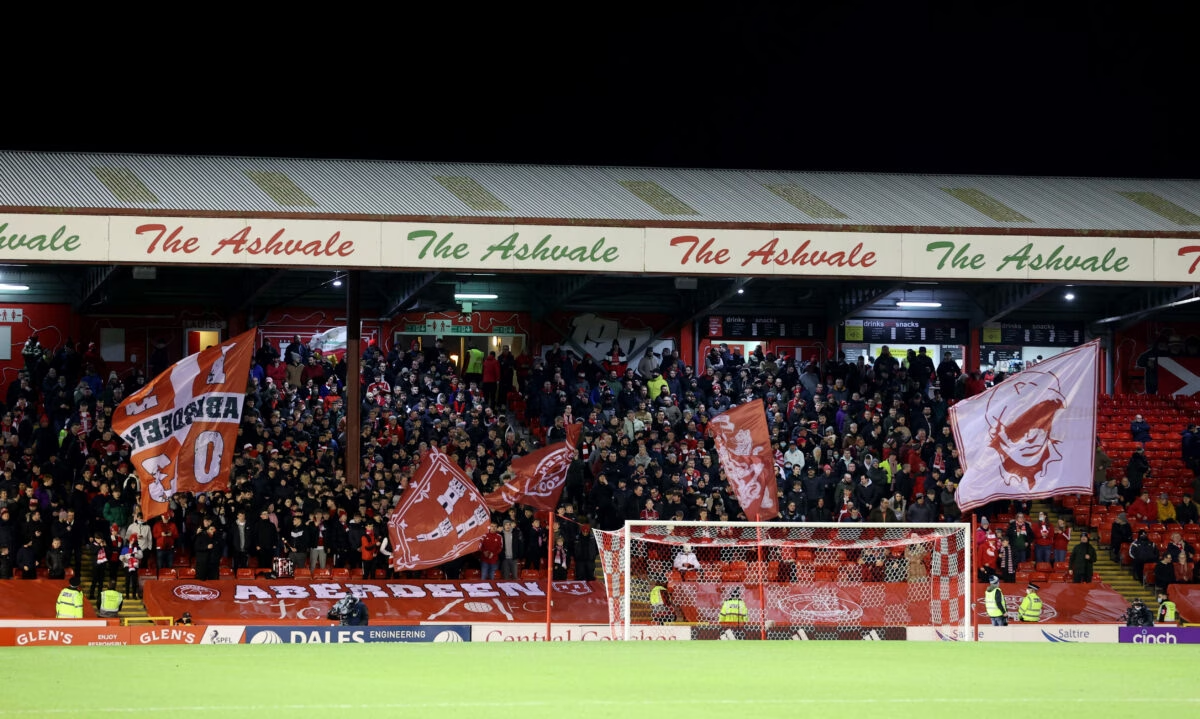
ANALYSIS OF DATA
The emissions generated by 2,943 fans travelling to the stadium on the 1st of October 2022 to watch the Aberdeen Vs Kilmarnock game have been measured as 18.1 tonnes CO2e.
This data was collected by surveying fans that arrived at the stadium.
This data can be used to estimate total emissions from fans’ travel for the season but estimations will be needed to scale this data up and include away games.
NEXT STEPS
- Complete the full measurement and analysis report, including carbon intensity and comparison to other clubs (where possible)
- Arrange a meeting to discuss the footprint in detail and to consider the method for including fan travel in the final measurement
- Sign off on the measurement process and begin carbon reduction strategy planning
UN SPORTS FOR CLIMATE ACTION FRAMEWORK
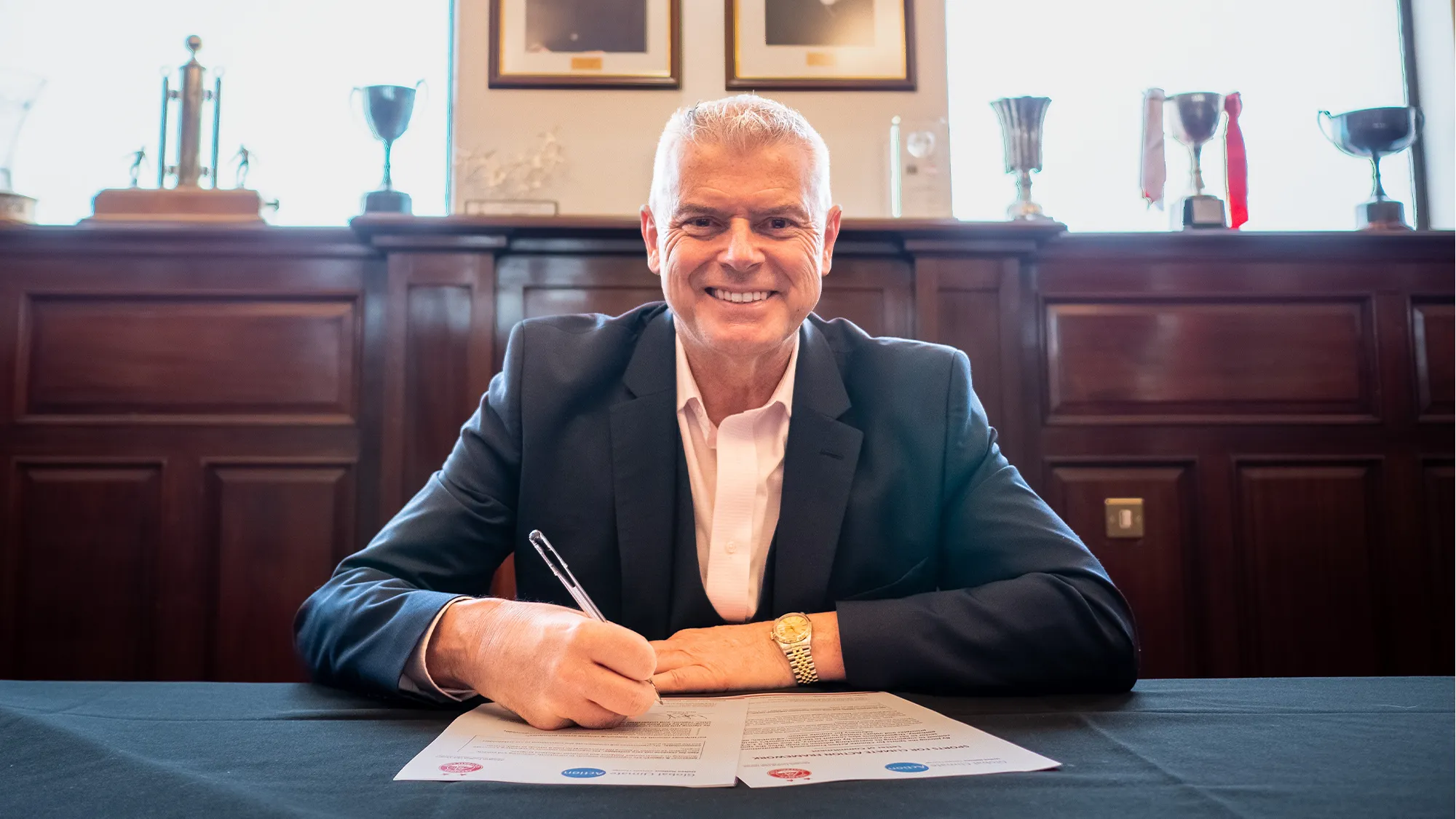
In March 2022 Aberdeen FC partnered with the UN Sports for Climate Action Framework.
In doing so the club joined a host of other teams, federations and rights holders who are taking responsibility for and seeking ways to reduce their carbon footprint. The partnership ensures that the club have committed to reducing emissions by 50% by 2030 and achieving net zero by 2040.
Later in 2022, the club appointed Positive Planet as its first net zero advisory partners. Positive Planet is a consultancy that aids the organisation’s sustainability attempts and will therefore work with the club to meet their goal of becoming net-zero by 2040.
Aberdeen FC is actively reducing its impact on the environment through ways such as innovative water management, LED sensor-operated lighting and eco-friendly showers at Cormack Park. The club also ensures that food, waste oil, grass cuttings, plastic, paper, and cardboard are all recycled.
The club also operates a subsidised public transport option for fans on matchdays through the local company First Bus.
All the club’s initiatives promote systematic efforts to promote greater environmental responsibility, reduce the overall climate impact, educate for climate action, promote sustainable and responsible travel, and advocate for climate action through communication.
